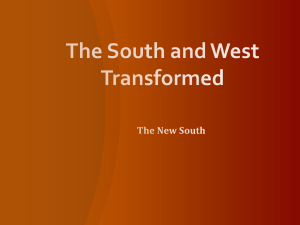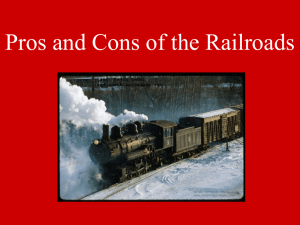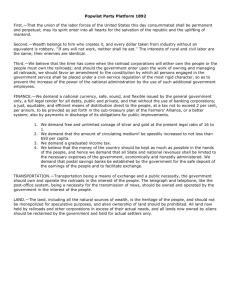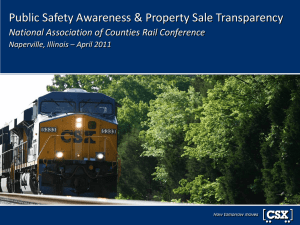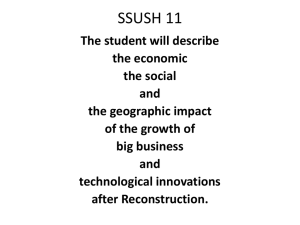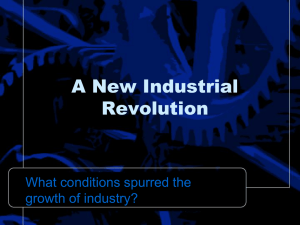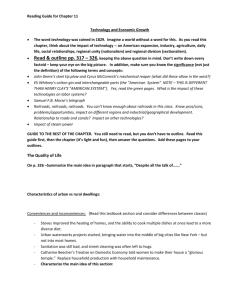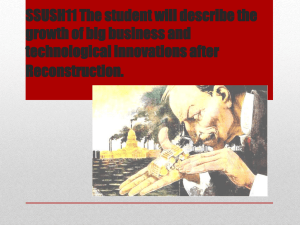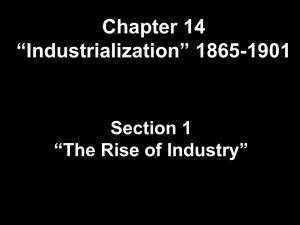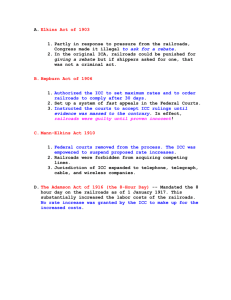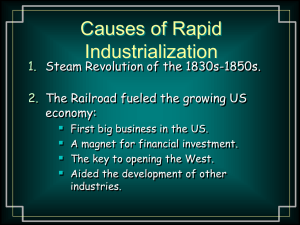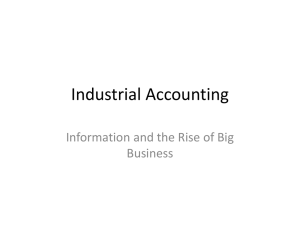Railroads and the Industrialization of America in the Gilded Age
advertisement
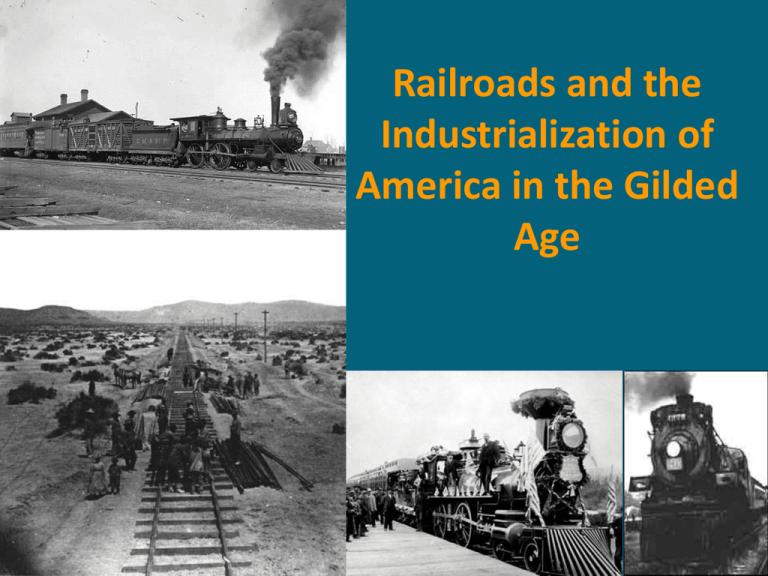
Railroads and the Industrialization of America in the Gilded Age Causes of Rapid Industrialization Steam Revolution of the 1830s-1850s. The Railroad fueled the growing US economy: First big business in the US. A magnet for financial investment. The key to opening the West. Aided the development of other industries. Causes of Rapid Industrialization Unskilled & semi-skilled labor in abundance. Abundant financial capital ($$$). New, talented group of businessmen [entrepreneurs] and advisors. Market growing as US population increased. Government willing to help at all levels to stimulate economic growth. Abundant natural resources. Causes of Rapid Industrialization Technological innovations. Bessemer and open hearth process Refrigerated cars Edison o “Wizard of Menlo Park” o light bulb, phonograph, motion pictures. Thomas Alva Edison “Wizard of Menlo Park” The Phonograph (1877) The light bulb Moving Pictures Stuff Edison Invented Alexander Graham Bell Telephone (1876) First words on the phone: “Yes, I have Dr. Pepper in a can. Why?!” Model T Automobile Henry Ford I want to pay my workers so that they can afford my product! “Model T” Prices & Sales New Business Culture Laissez Faire the ideology of the Industrial Age. Individual as a moral and economic ideal. Individuals should compete freely in the marketplace. The market was not man-made or invented. No room for government in the market! The Building of the Railroads Paid by the government with land grants; several square miles per mile of track laid The Building of the Railroads Use of immigrant labor Irish in the Midwest Chinese in California The Building of the Railroads Impact upon American economy: Steel production The Building of the Railroads Impact upon American economy: Communications The Building of the Railroads Impact upon American economy: transportation of people/goods The Building of the Railroads Impact upon American economy: Related industries manufacturing lumber mining The Building of the Railroads The emergence of the Railroad Barons: James J. Hill “The Commodore” Cornelius Vanderbilt Leland Stanford Jay Gould William Vanderbilt The Power of the Railroads Cornelius [“Commodore”] Vanderbilt Can’t I do what I want with my money? The Power of the Railroads More powerful than the government $ The public be d****d! $ What do I care about the law? H’aint I got the power? William Vanderbilt The Power of the Railroads Economic Exploitation of America: the “pool”: the division of railroad traffic among various “competitors” Led to higher rates for farmers and lower wages for workers The Transcontinental Railroad Obstacles: Dangerous conditions, Indian attacks, mountain ranges, labor troubles, weather The Trans-Continental Railroad May, 10, 1869: meeting of the Union and Central Pacific RRs. THE ROBBER BARONS! The ‘Robber Barons’ of the Past
